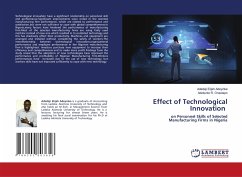This book analyses the role of consumer demand on technical change. Using a variety of techniques and approaches it discusses how successful innovations change consumers' options. While focusing on product innovation, the thesis is structured as four independent papers. We initially reflect from a microeconomic perspective on the evolution of preferences over time. A microeconomic model is introduced in which the consumer maximizes utility, taking decisions in which new possibilities interact with earlier purchasing habits. Habit formation and the novelty associated with new goods are two concepts that explain this dynamic consumer behaviour. The model explains a situation in which technically good innovative products can fail due to a lack of novelty value. Habit formation is analysed in a macroeconomic growth model. Working with non-homothetic preferences in a Dixit and Stiglizt framework, the model introduces creative destruction from the demand side.
Bitte wählen Sie Ihr Anliegen aus.
Rechnungen
Retourenschein anfordern
Bestellstatus
Storno








